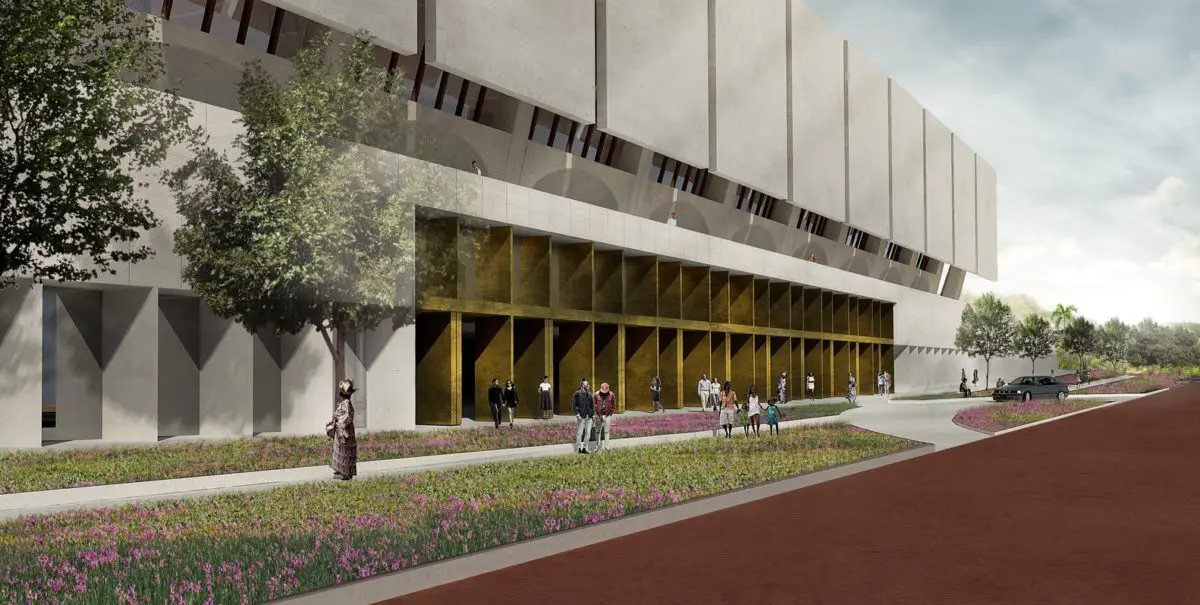Construction of the National Cathedral in Ghana is set to commence following demolition of buildings made up of offices and residential apartments for state officials to pave way for the development.
Court of Appeal judges who occupied some of the residential facilities constructed by the Judicial Service some five years ago, were evicted late last year and given a temporary accommodation set to cost the state some 168,000 dollars in 18 months.
All buildings within the Ridge enclave from the Ridge roundabout to the Scholarship Secretariat, the Judicial Training Institute and the Passport Office will be pulled down. President Nana Akufo-Addo on March 6, 2017, announced plans by his government to build an interdenominational Christian cathedral as part of Ghana’s 60th anniversary celebrations.
Also Read:NHA to construct 50,000 affordable housing units in Liberia
National Cathedral
Adjaye Associates, led by British-Ghanaian architect Sir David Adjaye, designed the new National Cathedral. The development according to Sir David will be a gathering place for all faiths to worship and celebrate “in a spiritual accord,” and it shall act as a “physical embodiment of unity, harmony, and spirituality.”
The design concept for the building establishes a unique, 21st- century landmark where religion, democracy and local tradition. The design celebrates the Ghananian heritage as well as Christian symbolism.
The Cathedral will sit on a 14-acre landscaped plot, adjacent to Osu Cemetery in Accra, and it will comprise a number of chapels, a baptistery, a music school, a choir rehearsal, a grand central hall, as well as a two-level auditorium with 5000 seats. That is in addition to an art gallery, a shop, multi-use spaces, and Africa’s first Bible museum and Documentation Center.
The Cathedral will be linked to the capital city’s most prominent landmarks, such as the Independence Square, Osu Cemetary, State House, and Africa Unity Circle, via a new ceremonial route and landscape.
“The Cathedral will address the missing link in our nation’s architecture by providing a Church of national purpose. It will be an inter-denominational house of worship and prayer, as well as serve as the venue for formal state occasions of a religious nature, such as presidential inaugurations, state funerals, and national thanksgiving services,” said President Nana Akufo-Addo.

Leave a Reply